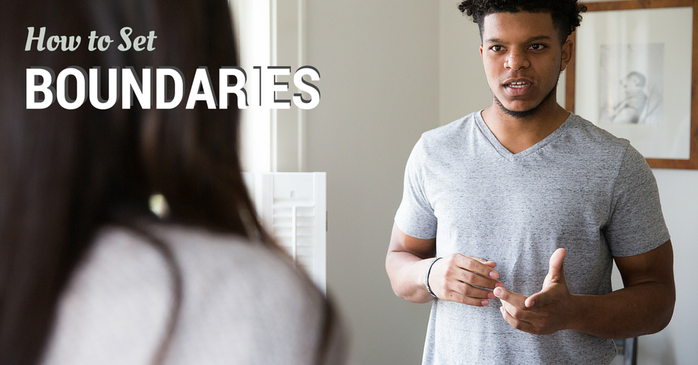|
Boundaries—it's one of those pop-psychology words we've all come across. We know we should "set boundaries" for ourselves but what does that actually mean? A definition of boundaries. The term was popularized in 1992 as a result of the bestseller, Boundaries by Henry Cloud and John Townsend. According to the authors: "A boundary is a personal property line that marks those things for which we are responsible. In other words, boundaries define who we are and who we are not." Recognize your limits. We are all human and we all have limits, and we need to know when we've reached those limits. We need to protect our space, our time, and our emotional energy from being taken advantage of by others. So how do boundaries play out in real life? Here are some examples:
Many Christians feel a burden to help others, but when helping starts to hurt us, we need to reevaluate our priorities. The Bible is clear about helping others, but it refers to assisting those who cannot help themselves. Even in those instances, God calls every person toward personal responsibility. The process of setting boundaries. So how do you actually set boundaries? With love and understanding. Many people mistakingly believe boundaries are meant to shut people out. That's not the case. They can actually improve relationships, families, and whole communities. The Apostle Paul reminds us in one of his letters: Instead, speaking the truth in love, we will grow to become in every respect the mature body of him who is the head, that is, Christ. --Ephesians 4:15 Steps to keep in mind. When we set boundaries, we have to speak the truth in love. Here is a short step-by-step process I recommend to my clients: 1. Go through with it. Show up and follow through. 2. Tell the truth. Be upfront, state what needs to change, and don't apologize. 3. Affirm the relationship. Couch your statement with affirmation, showing that you still care. Encourage the other person's ability to take personal responsibility. 4. Let go of the outcome. The person may get upset or not understand—don't let this affect you to the point of doubting yourself again. 5. Hold on to your own reality. Don't back down, or change your mind. Remind yourself of how beneficial this will be. What does this sound like in a real conversation? Remember, speaking the truth in love is key:
If you are taking on the responsibilities of other people, you are preventing them from taking responsibility for themselves. You aren't allowing them to grow. Boundaries are not limits you impose on other people—they are resolutions you place on yourself. They are preventative steps you take to protect yourself so you can stay healthy emotionally, and ultimately relate to others in a healthier manner. Subscribe to my newsletter
Comments are closed.
|
Article Topics
All
Archives
July 2023
|
We're ready to help. Let's begin.
Peoria LocationInside State Farm
9299 W Olive Ave Ste 212 Peoria AZ 85345 |
Phoenix LocationInside CrossRoads UMC
7901 N Central Ave Phoenix AZ 85020 |
About |
Services |
EducationPrograms
ACPE Spiritual Care Specialist Pastoral Counseling Apprenticeship Deconstruction Course Free Grief Training Contact |
We're ready to help. Let's begin.
© 2024 Prism Counseling & Coaching. All Rights Reserved.
Christian DISC® is a registered trademark of Prism Counseling & Coaching.
Christian DISC® is a registered trademark of Prism Counseling & Coaching.


